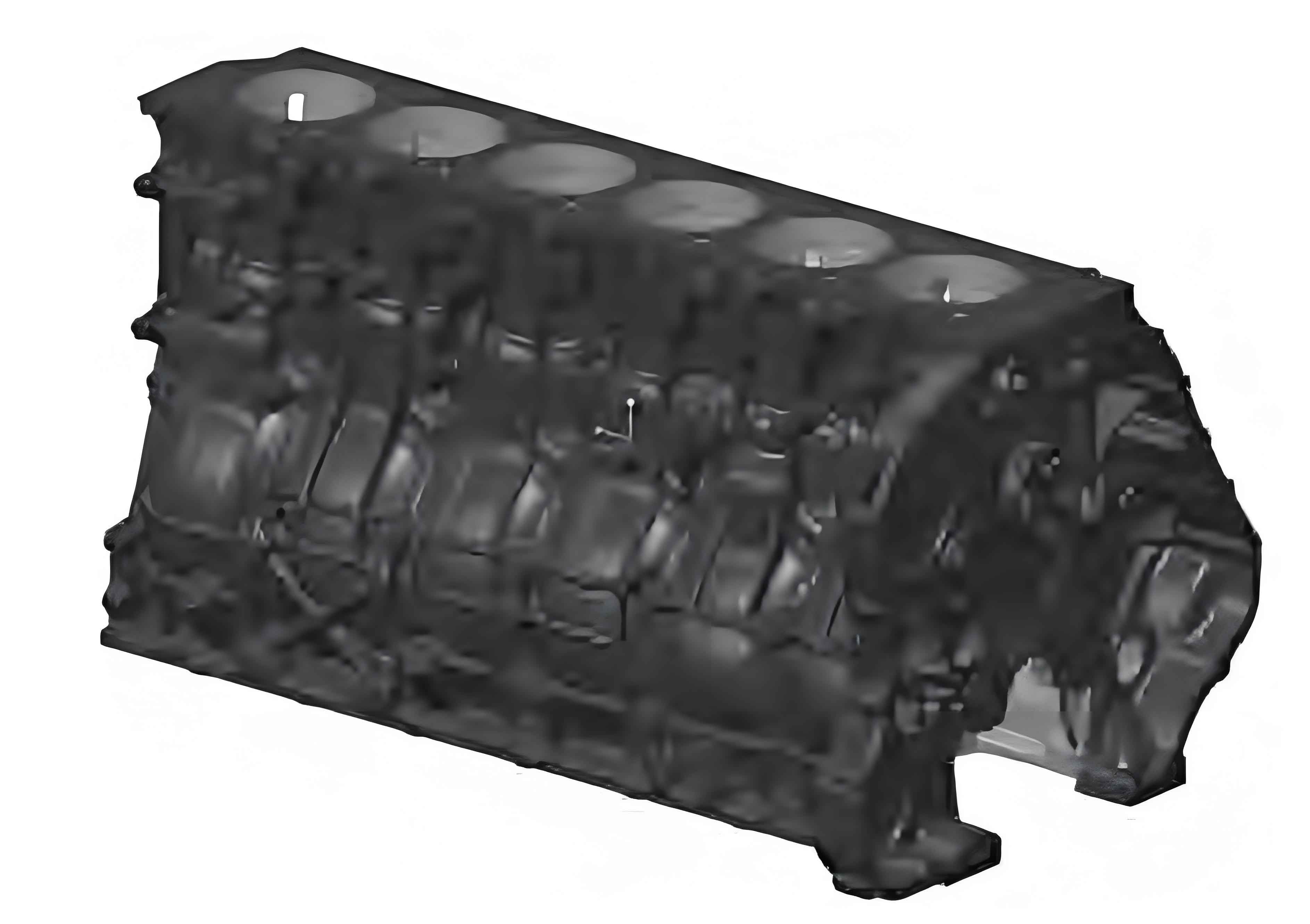With the increasing adoption of aluminum alloys in engine cylinder block manufacturing, traditional cooling methods face significant challenges. This paper systematically investigates four innovative temperature control technologies through theoretical modeling and experimental validation, focusing on their synergistic effects in precision machining of engine cylinder blocks.

1. Thermal Modeling and Heat Generation Mechanisms
For aluminum engine cylinder block machining, the heat generation model combines three primary sources:
$$q_{total} = q_1 + q_2 + q_3 = \tau\dot{\gamma} + \mu pv + \eta k_b T_m$$
where τ represents shear stress (MPa), $\dot{\gamma}$ denotes shear strain rate (s⁻¹), μ is friction coefficient, and $k_b$ characterizes bonding energy. The transient temperature field in engine cylinder block machining follows:
$$\rho c_p\frac{\partial T}{\partial t} = \nabla\cdot(k\nabla T) + q_{total}$$
| Parameter | Value | Unit |
|---|---|---|
| Shear zone heat fraction | 60-70% | – |
| Friction heat fraction | 20-30% | – |
| Bonding heat fraction | 5-10% | – |
2. High-Pressure Coolant (HPC) Technology
HPC demonstrates exceptional cooling performance in engine cylinder block machining through:
$$h_{HPC} = 0.023\frac{k_f}{D_h}Re^{0.8}Pr^{0.4}\left(1 + 3.6\frac{P}{P_{atm}}\right)$$
Optimal parameters for engine cylinder block machining:
| Parameter | Optimal Range |
|---|---|
| Pressure | 8-10 MPa |
| Flow Rate | 12-15 L/min |
| Nozzle Diameter | 0.8-1.0 mm |
3. Minimum Quantity Lubrication (MQL) Optimization
The MQL performance model for engine cylinder block machining:
$$T_{MQL} = 452 – 7.3Q – 215P + 1.8D + 0.15Q^2 + 180P^2 + 0.02D^2$$
Key operational parameters:
| Factor | Effect |
|---|---|
| Oil Flow Rate | 18-22 ml/h |
| Air Pressure | 0.5-0.6 MPa |
| Nozzle Distance | 30-40 mm |
4. Cryogenic Cooling Synergy
The hybrid cooling strategy combining MQL and LN₂ for engine cylinder blocks achieves:
$$q”_{hybrid} = 4.8\times10^6\left[1 – e^{(-0.07t)}\right]\ \text{W/m}^2$$
Performance comparison:
| Method | Temp. Reduction | Tool Life | Ra Improvement |
|---|---|---|---|
| Dry Cutting | Baseline | 25 min | 1.6 μm |
| MQL+LN₂ | 37.2% | 77 min | 1.1 μm |
5. Economic and Technical Evaluation
Comprehensive assessment of cooling strategies for engine cylinder block production:
| Technology | Initial Cost | Running Cost | Efficiency Gain |
|---|---|---|---|
| Flood Cooling | $15k | $0.35/part | 12% |
| HPC | $42k | $0.28/part | 34% |
| MQL+LN₂ | $68k | $0.41/part | 52% |
The developed hybrid cooling strategy demonstrates superior performance in engine cylinder block machining, particularly for high-speed operations exceeding 200 m/min. Future work will focus on adaptive control systems for dynamic thermal management in mass production environments.
